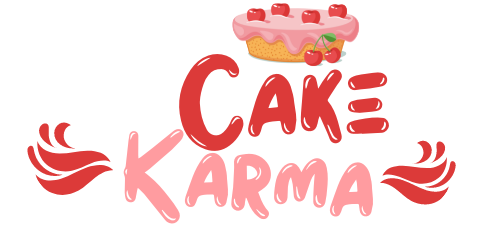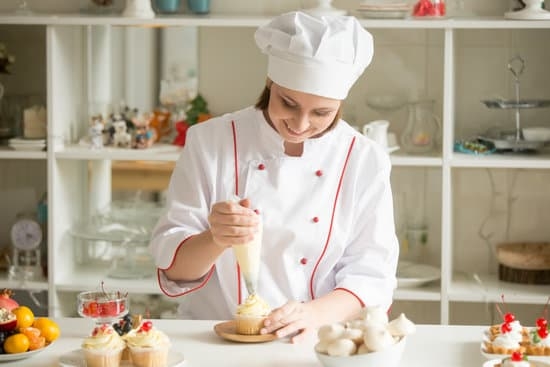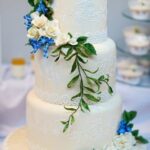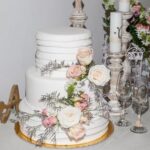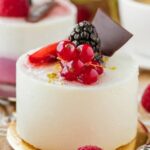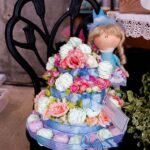Have you ever wondered what are the duties of a cake decorator? Cake decorating is a creative and intricate art form that requires skill, patience, and attention to detail. From beautifully crafted wedding cakes to fun and festive birthday creations, cake decorators play a crucial role in making special occasions even more memorable with their artistic designs.
Cake decorators bring delicious confections to life through their mastery of various techniques such as fondant molding, buttercream piping, and intricate design work. They must possess a keen eye for aesthetics and be able to transform simple cakes into stunning works of edible art. Whether working in a bakery, catering company, or starting their own business, cake decorators have the opportunity to showcase their creativity and talent in every sweet creation they make.
In this article, we will explore the world of cake decorating, from essential skills and qualifications needed for success in the field to the tools of the trade that every decorator must have. We will delve into the creative process behind designing unique cakes, as well as different techniques used in cake decoration such as fondant sculpting and intricate piping.
Additionally, we will discuss important aspects like time management tips, dealing with client requests, maintaining hygiene standards, and more. Join us on this journey into the rewarding career of a cake decorator.
Essential Skills and Qualifications for Cake Decorators
When it comes to becoming a successful cake decorator, there are a number of essential skills and qualifications that can help you stand out in the competitive field. One of the most important skills for any cake decorator is having a keen eye for detail.
This involves being able to carefully observe and recreate intricate designs, patterns, and textures on cakes. Additionally, creativity is key in this profession – being able to come up with unique and innovative ideas for cake designs will set you apart from others in the industry.
In terms of qualifications, while there are no formal education requirements to become a cake decorator, many professionals choose to pursue certifications or courses in baking and pastry arts. These programs can provide valuable training in areas such as cake design, food safety, and flavor combinations. Some employers may also prefer candidates who have completed an apprenticeship or have prior experience working in a bakery or culinary setting.
Food Safety Certification
One important qualification that all cake decorators should have is a food safety certification. This certification ensures that you understand proper food handling techniques, sanitation practices, and health regulations when working with edible ingredients. It is essential for maintaining the health and safety standards of your customers and ensuring the longevity of your business.
Customer Service Skills
Another key skill for cake decorators is excellent customer service skills. Dealing with client requests and custom orders can sometimes be challenging, so having good communication skills, patience, and the ability to work collaboratively with customers is crucial. Building strong relationships with clients can lead to repeat business and positive referrals, which are essential for growing your reputation as a skilled cake decorator.
Tools of the Trade
Cake decorating requires a variety of tools and equipment in order to create stunning and beautiful designs on cakes. One of the most essential tools for cake decorators is a turntable, which allows for easy access to all sides of the cake while decorating. A good quality offset spatula is also crucial for smoothing buttercream and applying smooth layers of frosting. Piping bags and tips are necessary for creating intricate designs such as flowers, borders, and writing on cakes.
Another important tool for cake decorators is a bench scraper, which helps achieve sharp edges on cakes and smooth surfaces. A cake leveler or serrated knife is essential for leveling cakes before stacking them, ensuring a stable base for decorating. Additionally, a set of different shaped cutters and molds can be used to create decorative accents such as stars, hearts, and leaves.
It is also important for cake decorators to have a variety of food coloring gels or powders in order to achieve the desired colors for their designs. Dusting powders can be used to add shimmer and shine to decorations, while edible markers are helpful for adding fine details. With the right tools and equipment at hand, cake decorators can bring their creative visions to life on delicious confections.
The Creative Process
When it comes to cake decorating, the creative process is a crucial aspect that sets apart a good cake decorator from a great one. From drawing inspiration to translating ideas into beautiful designs, this process requires skill, imagination, and attention to detail. Here are some key steps in the creative journey of a cake decorator:
- Seeking Inspiration: One of the first steps in creating a stunning cake design is finding inspiration. This can come from anywhere – nature, art, fashion, or even everyday objects. Many cake decorators also follow trends in the industry and on social media for fresh ideas.
- Sketching Designs: Once inspired, cake decorators often sketch out their design ideas on paper before bringing them to life on a cake. This helps visualize the final product and make necessary adjustments before starting the decorating process.
- Choosing Colors and Themes: Selecting the right color palette and theme is essential to creating a cohesive and visually appealing cake design. Whether it’s a whimsical children’s birthday cake or an elegant wedding cake, colors play a significant role in conveying the desired mood and style.
Throughout this creative process, effective communication with clients is key. Cake decorators must be able to understand and interpret their clients’ vision while adding their own artistic touch. By mastering the art of inspiration and design, cake decorators can turn simple cakes into edible works of art that delight clients and guests alike.
Techniques of Cake Decoration
Cake decoration is an art form that involves a variety of techniques to transform plain cakes into stunning works of edible art. From fondant and buttercream to piping and more, cake decorators have a toolbox full of techniques to bring their creative visions to life. Understanding and mastering these techniques are essential for creating beautiful and unique cakes that leave a lasting impression on clients.
Working With Fondant
Fondant is a versatile and popular medium used in cake decorating. It is a smooth, pliable icing that can be rolled out and draped over cakes to create a flawless finish. Cake decorators often use fondant to create intricate designs, sculpt figurines, and achieve a polished look on special occasion cakes like weddings or birthdays. Mastering the art of working with fondant requires patience, precision, and attention to detail.
Artistry With Buttercream
Buttercream is another fundamental technique in cake decorating. This creamy frosting can be used for everything from simple swirls and rosettes to intricate floral designs and piped borders. Cake decorators often use buttercream for its versatility in creating textures, patterns, and even painted effects on cakes. The key to mastering buttercream decoration lies in understanding different consistencies, piping tips, and techniques for achieving various designs.
Piping Perfection
Piping is a foundational skill that every cake decorator must master. Whether it’s using royal icing for delicate lacework or creating intricate designs with buttercream, piping adds dimension and detail to cake decorations. Different piping tips can produce a variety of effects such as ruffles, shells, dots, and more. Practicing piping techniques regularly is crucial for developing precision and consistency in decorating cakes.
Time Management Tips for Cake Decorators
Time management is a critical aspect of being a successful cake decorator. With multiple orders to fulfill, deadlines to meet, and intricate designs to execute, effective time management skills can make all the difference in ensuring smooth operations in a bakery or cake decorating business.
One important tip for cake decorators is to maintain a detailed schedule or calendar that outlines all upcoming orders, deadlines, and commitments. This can help you prioritize tasks, allocate sufficient time for each project, and avoid last-minute rushes or delays. By planning ahead and staying organized, you can ensure that each cake receives the attention and creativity it deserves.
Another key aspect of time management for cake decorators is knowing when to delegate tasks or seek assistance. While it’s important to take pride in your work and handle most aspects of cake decoration yourself, there may be times when it’s necessary to enlist help from assistants or other team members. This can help streamline the process, increase efficiency, and prevent burnout during busy periods.
| Tips for Time Management | Benefits |
|---|---|
| Maintain a detailed schedule | Prioritize tasks effectively |
| Delegate tasks when necessary | Increase efficiency and prevent burnout |
Dealing With Client Requests and Custom Orders
As a cake decorator, it is crucial to understand how to effectively deal with client requests and custom orders in order to provide excellent service and exceed customer expectations. Here are some key strategies to ensure smooth communication and successful execution of customized cake designs:
- Consultation: One of the first steps in handling client requests is to schedule a consultation with the customer. During this meeting, it is important to actively listen to the client’s ideas, preferences, and vision for the cake. Ask probing questions to clarify details and gather as much information as possible.
- Design Proposal: After the initial consultation, create a design proposal that outlines the specifications discussed with the client. This may include design sketches, color swatches, flavor options, and pricing details. Presenting a clear and detailed proposal helps set expectations and ensures that both parties are on the same page.
- Communication: Throughout the process of designing and creating the custom cake, maintaining open communication with the client is essential. Provide updates on progress, seek feedback on design elements, and address any concerns or changes promptly. Building a good rapport with clients can lead to repeat business and positive referrals.
By following these steps, cake decorators can navigate client requests and custom orders effectively, leading to satisfied customers and successful projects.
It is important for cake decorators to be adaptable and creative when working on custom orders for clients’ special occasions such as weddings, birthdays, or corporate events. Attention to detail and precision are key skills that come into play when executing complex designs requested by customers.
Remember not only how important it is to deliver visually appealing cakes but also ensure that they taste delicious. This means incorporating flavors that align with the client’s preferences while still showcasing your expertise in creating beautifully decorated cakes.
Maintaining Hygiene and Safety Standards in Cake Decorating
To maintain proper hygiene standards, cake decorators must regularly clean and sanitize their work area, including countertops, equipment, and utensils. Additionally, they should practice good personal hygiene by washing their hands frequently, wearing clean garments like aprons and hairnets, and avoiding touching their face or hair while working on cakes. It is also essential for cake decorators to properly store ingredients to prevent cross-contamination and spoilage.
In addition to maintaining hygiene standards, ensuring safety in cake decorating is equally important. Cake decorators should be knowledgeable about safe food handling practices to prevent foodborne illnesses. This includes using fresh ingredients, checking for expiration dates, storing perishable items at the correct temperature, and avoiding cross-contamination between raw and cooked products. By following these guidelines diligently, cake decorators can provide their clients with delicious treats that are both visually appealing and safe to consume.
Conclusion
In conclusion, the duties of a cake decorator encompass a wide range of skills and responsibilities that come together to create beautiful and delicious works of edible art. From mastering essential techniques like fondant work and piping to managing client requests and custom orders with creativity and professionalism, a successful cake decorator must be well-rounded in both artistic flair and business acumen.
The ability to balance the creative process with time management, hygiene standards, and client satisfaction is what sets apart a great cake decorator from the rest.
Aspiring cake decorators should focus on honing their skills, investing in quality tools and equipment, and staying updated on trends in the industry to stay competitive in this rewarding career. With dedication, passion, and attention to detail, cake decorators can carve out a niche for themselves in the world of baking and confectionery. As they bring joy to celebrations through their creations, they also find fulfillment in seeing their artistic visions come to life on every cake they decorate.
In essence, being a cake decorator is not just about creating visually stunning cakes but also about making memorable moments for clients through customized creations. It requires a unique blend of creativity, precision, and customer service skills to thrive in this field.
While it may have its challenges, the rewards of seeing delighted faces enjoying your masterpieces make all the hard work worth it. So for those who have a passion for baking and design, pursuing a career as a cake decorator can lead to a fulfilling and satisfying journey in the world of sugar artistry.
Frequently Asked Questions
What Are the Duties and Responsibilities of Cake Decorator?
As a cake decorator, the duties and responsibilities typically include creating designs and decorations for cakes, cupcakes, and pastries. This involves using various tools and techniques to ice, pipe, sculpt, and paint edible artwork onto baked goods. The decorator also needs to ensure that the final product meets the customer’s requests or design specifications.
What Does a Cake Decorator Do on a Daily Basis?
On a daily basis, a cake decorator spends their time preparing icings, fillings, and decorations for cakes. They may also be tasked with baking cakes, mixing colors for icing, creating fondant shapes, and cleaning tools and work areas. Attention to detail is crucial in ensuring that each cake meets quality standards and customer expectations.
How Do You Describe Cake Decorator on Resume?
When describing a cake decorator on a resume, it is important to highlight relevant skills such as creativity, precision, artistic ability, time management, and knowledge of baking techniques. Including specific experience in using various decorating tools and working with different types of icing can also strengthen the resume.
Additionally, showcasing any formal training or certifications related to cake decorating can demonstrate expertise in the field to potential employers.

Welcome to our cake decorating blog! My name is Destiny Flores, and I am the proud owner of a cake decorating business named Cake Karma. Our mission is to provide delicious, beautiful cakes for all occasions. We specialize in creating custom cakes that are tailored specifically to each customer’s individual needs and tastes.
